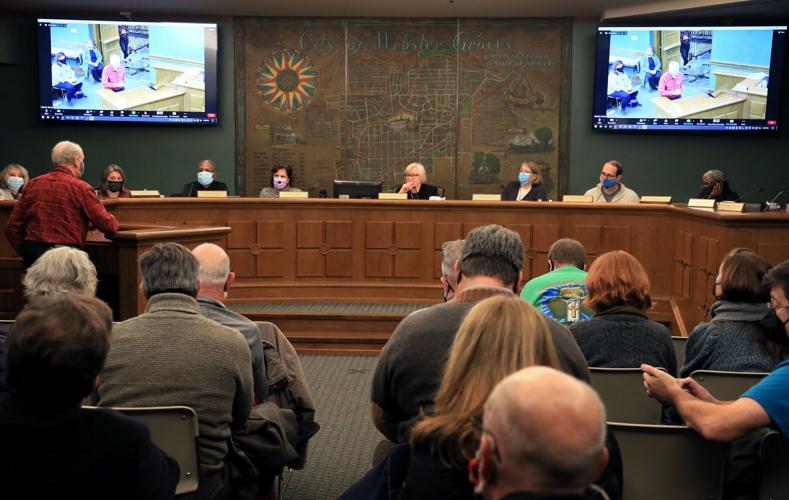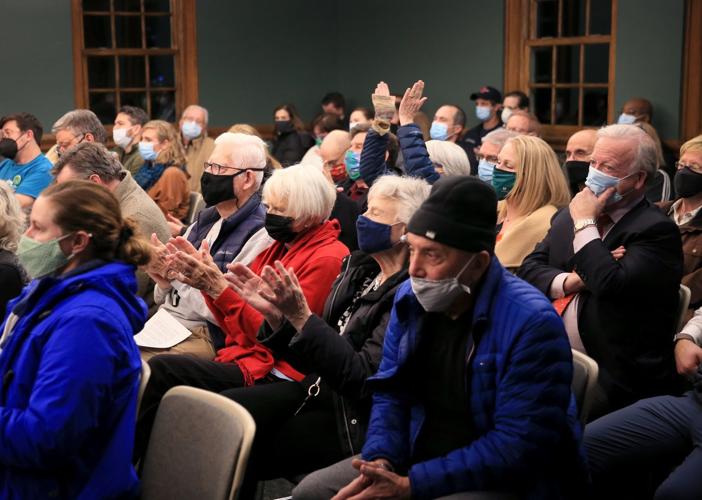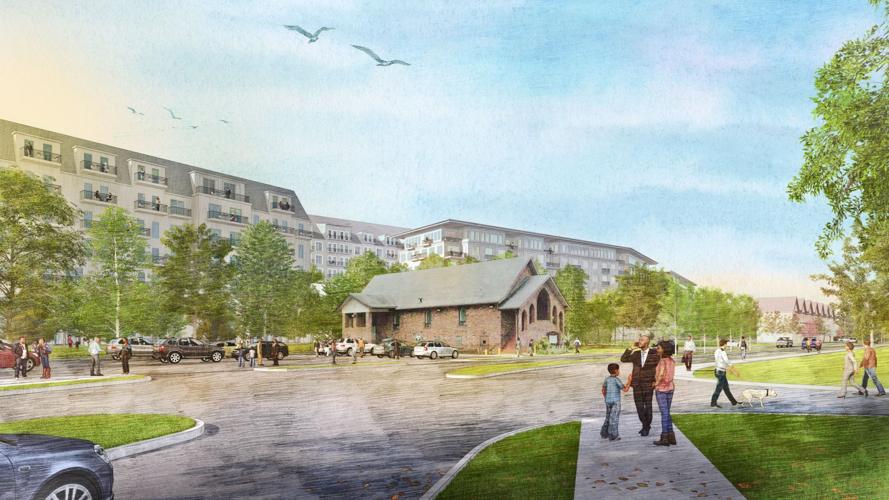WEBSTER GROVES ā Residents and city leaders alike described it as something of a reckoning.
A day prior, the Webster Groves City Council voted down a $320 million housing and commercial project that dominated public attention for months. Leaders on Wednesday said citizens had made clear that this was the wrong deal for Webster.
For residents, the vote was testament that elected officials were finally listening.
āItās definitely a win for the people,ā said resident David Yates, āversus people who have the money and power to do things.ā
Over the past six months, Webster Groves officials faced intense scrutiny from those unhappy with their decisions ā first with an affordable housing ordinance that was later overturned in a special election and then with developer SG Collaborative, which bid to remake 15 acres at the southwest corner of North Gore and West Kirkham avenues.
People are also reading…
Residents often said they were not opposed to redeveloping the hodgepodge of warehouses, businesses and overgrowth at the north end of Webster. But they didnāt like this project, they said.
Yates, who lives a block west of the site, was initially excited. But he became disillusioned after seeing the details.
The developer, which includes St. Louis firms Green Street Real Estate Ventures and Seneca Commercial Real Estate, sought to build 700 apartments, 100 condominiums and more than 100,000 square feet of retail and commercial space called Douglass Hill. The development, the most ambitious commercial development to go before the city in recent memory, would have replaced existing businesses, including longtime gymnastics studio St. Louis Gym Centre. SG Collaborative sought $35 million in tax increment financing to offset the costs to buy and prepare the land for construction.
Residents were turned off by the projectās scale and size, its impact to Shady Creek and traffic, the public incentives and the potential for the city to use eminent domain to force unwilling owners to sell.
āIt wasnāt any one thing,ā said Emily Hixson Shepherd, who lives on the same block as Yates. āIt was just all of it together.ā
Webster Groves City Council members discuss their decision on voting against a major redevelopment on Tuesday, Dec. 7, 2021.
Yates said he lost faith after several meetings, believing the developer did not take into account residentsā desires or concerns.
āĮńĮ«ŹÓʵ were talking at us, not with us,ā Yates said. āIt was frustrating.ā
Resident Richard Mazzarella led an effort that got 800 registered Webster Groves residents to sign an initiative petition to force a public vote on the use of eminent domain, rezoning changes and construction near streams in an effort to stop SG Collaborative. The council ultimately denied the petition, citing violation to local and state statutes, but the move sent a message:
āThey are public servants and should reflect what the public wants,ā Mazzarella said recently.
During Tuesdayās vote, council members echoed residentsā concerns. Mayor Gerry Welch said afterwards that the project was āout of context with the community.ā
Larry Chapman, president and CEO of Seneca, argued on Wednesday that SGās plan came as a result of conversations with city officials and residents. City leaders never shared concerns about density and building heights, he said. Douglass Hill, he said, would have delivered affordable housing and would have become a centerpiece of the city.
A decade ago, residents rejected in a special election a similar project that sought to build apartments, condos and shops across from City Hall on East Lockwood Avenue.
āThe problem is leadership. There really is none,ā Chapman said of Webster officials, in an email Wednesday to the Post-Dispatch. āThe loudest 100 or so people in Webster set policy and City Council follows them. Developers donāt like that.ā
But council member Laura Arnold, who is running for mayor in the April election, said she read the hundreds of comments the city fielded regarding the project. Overwhelmingly, she said, responses were against it.
And there were other markers of discontent, she noted: Planning commission members deadlocked on the project. Key city representatives opposed the $35 million in tax incentives, as did the Webster Groves School District.
āIf it was a loud minority, then the majority had little to say,ā Arnold said.
Councilmembers and residents are in agreement that Webster ā now whiter and more affluent than a decade ago ā has to have affordable housing if it wants to become more racially and economically diverse, to welcome and keep everyone from the young professional to the bustling family to the aging grandparent.
Residents and leaders both said, after Tuesdayās vote, that they have to harness the community engagement spurred by this project, and figure out a new plan for the site.
āOur work is not done,ā council member David Franklin said Wednesday.
After the vote, Yates and others celebrated with high-fives and a few beers in āthe afterglow of victory,ā he said. Hixson Shepherd, inspired by her interactions with neighbors and local bureaucracy, filed to run for city council in April.
āItās not just done and in our rearview mirror,ā she said.
Now the hard work will start again.
Green Street Real Estate Ventures and its partner, Poplar Bluff-based Sterling Bank, are planning 270 apartments at Bemiston and Carondelet avenues.Ā























